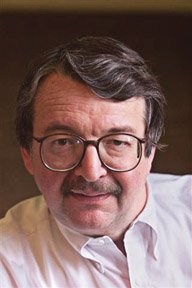During his time at Memorial High School, Harold Fernandez excelled in academics and on the sports fields, graduating as valedictorian of his class. He went on to study at Princeton University and Harvard Medical School – but he had a secret.
As an undergraduate at Princeton, his dreams of success were nearly cut short when officials questioned his immigration status during an administrative check of paperwork for all foreign-born students.
It is a story that resonates through Hudson County today, which has one of the highest proportions of foreign-born residents in the country.
“Immigrating is so difficult; you take a risk.” – Joe Berger
________
Smuggled in
Originally from Colombia, Fernandez made his way to the United States illegally in 1978 on a boat with his brother and a group of other immigrants being smuggled into the United States. They took a boat from a small island in the Bahamas to Florida and eventually joined their family who had already arrived in West New York.
Once there, he excelled in his studies. At Princeton, he studied by pretending he was teaching a class on the subjects he was studying.
But near the end of freshman year Fernandez’s world was turned upside down when he received a letter that had been sent to all foreign-born students requesting their original documentation be brought to the office for verification. A copy of a green card had been submitted with his application to Princeton, but it was forged.
On the brink of being kicked out of school and deported, he told the Princeton officials the truth and asked for their help.
Soon, Fernandez and his family went before a judge to become legalized. Armed with letters written on their behalf from the likes of then-Sen. Bill Bradley and Gov. Tom Kean (both Princeton graduates) as well as help from immigration lawyers, his entire family was able to become legalized citizens.
After fixing his paperwork, Fernandez married a young woman from his old neighborhood in Colombia.
He is now a successful cardiac surgeon in Long Island. His relatives still live in the same house in West New York.
Personal connection
Fernandez recently finished writing a book, Illegal Alien, with New York Times writer and author Joe Berger. They are now searching for a publisher.
“I want readers to understand the immigrant experience,” said Berger last week. “[They] see that the only opportunity for a better life is through immigrating, but immigrating is so difficult; you take a risk.”
Fernandez’s memoir was a special project for Berger, who has published three books on the immigrant experience including a memoir of his own. He himself was 5 years old when his family came to the United States.
“My family came over in 1950,” said Berger last week. “They were holocaust refugees.” Berger said his family survived the war by fleeing from Poland to Russia, where he was born.
“The whole issue of immigrants has very visceral qualities for me,” said Berger. “It took many years for my parents to get a visa to come over here.”
Fernandez was unavailable to speak for this article.
Striving for success
Berger said his interviews with Fernandez’s parents were an especially poignant part of the process.
Fernandez’s father came to the United States and began working in a factory that made turnstiles for New York City subways. He sent all of the money back to Colombia until his wife, Harold’s mother, was able to join him.
She began work in a garment factory while Harold and his brother remained with their grandmother in Colombia until their parents had enough money to sustain the family.
“They reminded me very much of my own parents,” said Berger. “That kind of self sacrifice really touched me. It shows you the great desire that people have to improve their lives; give their children better lives.”
Berger, who teaches a course about immigration at City University of New York, said that the passion to succeed is a trait often found in first- and second-generation immigrant children.
“Children of immigrants feel a stronger need to redeem their parents’ lives,” said Berger. “You feel like you need to show that you’re going to make your family’s life better.”
Lana Rose Diaz can be reached at ldiaz@hudsonreporter.com.
